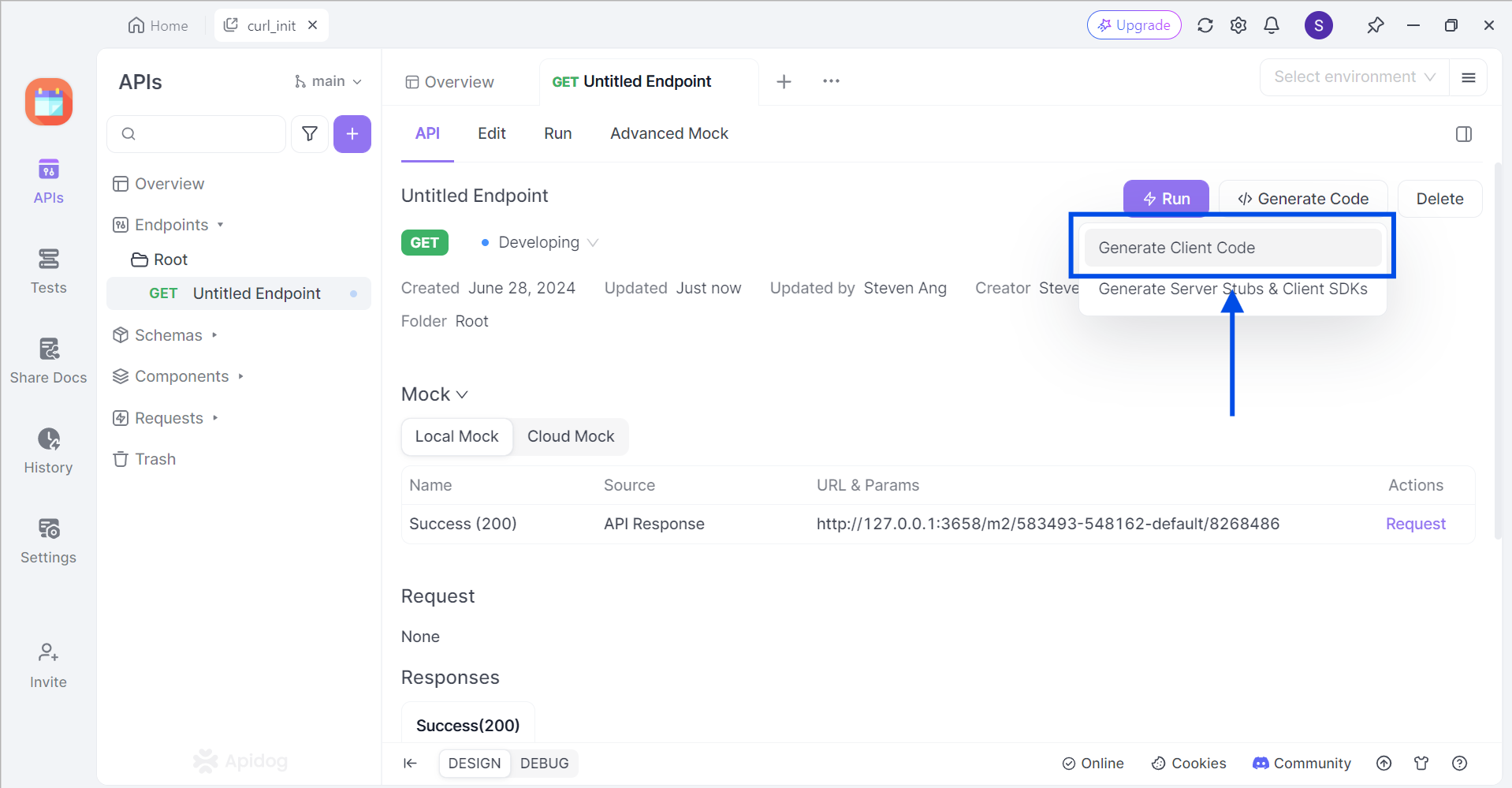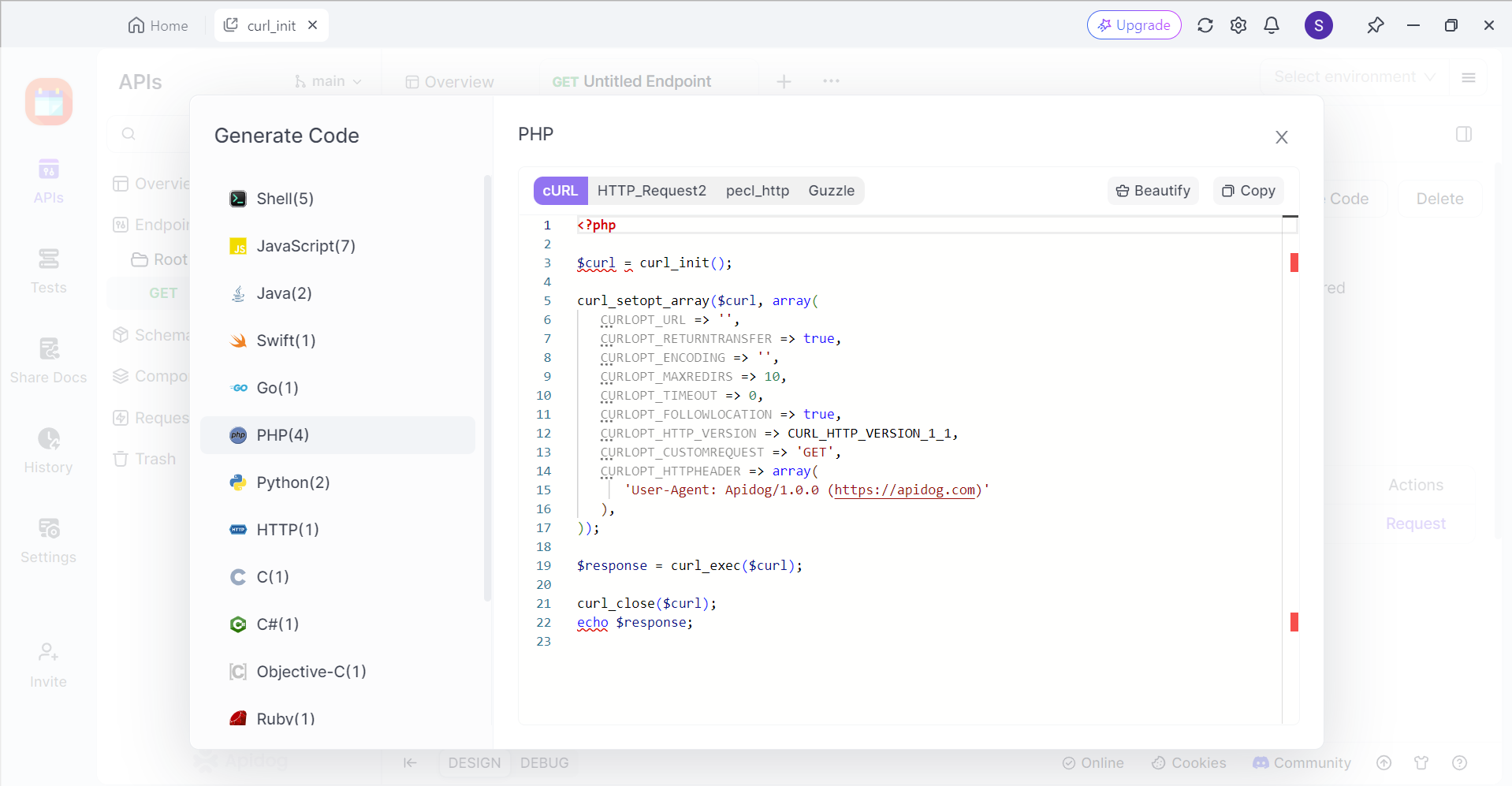In today's interconnected digital landscape, APIs (Application Programming Interfaces) have become the backbone of modern software development. As organizations increasingly rely on APIs to power their applications and services, effective collaboration among API teams has become crucial for success.
This article explores the key aspects of API team collaboration, best practices, and strategies to enhance teamwork throughout the API lifecycle.
Apidog is a low-code API development platform that provides developers with all necessary functionalities for the entire API lifecycle, including automated code generation and CI/CD pipelines.
To learn more about Apidog, make sure to click the button below.

The Importance of API Team Collaboration
API development is a complex process that involves multiple stakeholders, including developers, designers, product managers, and quality assurance professionals. Effective collaboration among these team members is essential for several reasons:
- Improved API Quality: Collaboration allows team members to share insights, catch errors early, and refine API designs collectively.
- Faster Development: When teams work together seamlessly, they can accelerate the development process and reduce time-to-market.
- Consistency: Collaborative efforts help maintain consistency across different APIs within an organization.
- Innovation: Cross-functional collaboration often leads to innovative solutions and creative problem-solving.
- Better Documentation: Collaborative efforts result in more comprehensive and accurate API documentation.
Key Elements of API Team Collaboration
Clear Communication Channels
Establishing clear communication channels is fundamental to effective API collaboration. This involves setting up regular meetings, using messaging platforms like Slack or Microsoft Teams, and implementing project management tools to track progress and assign tasks.
Shared Documentation
Maintaining a single source of truth for API specifications, usage guidelines, and updates is crucial. This shared documentation serves as a reference point for all team members and ensures everyone is working with the most up-to-date information.
Role Definition
Clearly defining roles and responsibilities within the API team helps avoid confusion and overlap. This includes assigning specific tasks to team members based on their expertise and ensuring everyone understands their part in the development process.
Version Control
Implementing robust version control practices is essential for managing changes to API code and documentation. This ensures consistency and traceability throughout the development lifecycle.
Regular Testing and Validation
Collaborative API development requires ongoing testing and validation to catch issues early and ensure the API meets required standards. This involves both automated testing and manual review processes.
API Collaboration Stages
Effective collaboration occurs throughout various stages of the API lifecycle:
1. Design Stage
During the design phase, all stakeholders should work together to define the API's intended use cases, functionality, and data formats. This collaborative effort helps ensure that the API meets business requirements and user needs.
2. Development Stage
As the API is being built, developers should use version control systems and collaborative coding practices like pair programming. This allows for parallel work while minimizing conflicts and encouraging knowledge sharing.
3. Testing Stage
QA engineers and developers should collaborate closely during the testing phase. By involving testers early in the process, teams can catch and address issues more quickly, leading to higher-quality APIs.
4. Documentation Stage
Creating comprehensive API documentation is a collaborative effort that involves input from developers, technical writers, and product managers. This ensures that the documentation is accurate, user-friendly, and meets the needs of API consumers.
5. Maintenance and Evolution Stage
As APIs evolve, ongoing collaboration is necessary to manage updates, address issues, and incorporate user feedback. This involves regular review sessions and open communication channels for reporting and resolving problems.
Best Practices for API Team Collaboration
1. Adopt an API-First Approach
Implementing an API-first approach means designing APIs before implementation. This strategy ensures clear requirements and facilitates better collaboration across teams by providing a shared vision of the API's structure and functionality.
2. Implement Continuous Integration and Testing
Regular testing and integration help catch issues early and maintain high quality. This practice encourages collaboration between developers and QA teams throughout the development process.
3. Utilize Clear Documentation
Maintaining comprehensive and up-to-date API documentation is crucial for effective collaboration. Tools like Swagger, Postman, or ReadMe can help create interactive and user-friendly documentation that serves as a central reference point for all team members.
4. Conduct Regular Reviews
Scheduling periodic reviews of API changes and updates ensures alignment with project goals and standards. These reviews provide opportunities for team members to offer feedback and suggestions for improvement.
5. Foster a Collaborative Culture
Encouraging open communication and collaboration among team members creates a supportive and efficient working environment. This includes promoting knowledge sharing, celebrating successes, and learning from failures as a team.
6. Use Collaboration Tools
Leveraging collaboration tools designed specifically for API development can significantly enhance teamwork. Platforms like Apidog offer features such as real-time notifications, collaboration links for quick endpoint location, and project-specific permissions to streamline the collaborative process.
7. Implement Agile Methodologies
Adopting agile methodologies like Scrum or Kanban can improve API team collaboration by promoting iterative development, continuous feedback, and close collaboration between team members.
8. Encourage Knowledge Sharing
Promoting knowledge sharing through documentation, training sessions, and mentoring programs helps bridge expertise gaps within the team and fosters a culture of continuous learning.
9. Manage Dependencies Effectively
Establishing clear processes for managing dependencies between different teams and stakeholders is crucial. This includes defining roles and responsibilities and using project management tools to track interdependencies.
Overcoming Collaboration Challenges
While collaboration is essential, it can present challenges, especially in distributed or remote teams. Some common challenges and strategies to overcome them include:
- Communication Barriers: Implement clear communication protocols and use tools that facilitate both synchronous and asynchronous communication.
- Time Zone Differences: Establish overlapping work hours and use asynchronous communication methods to ensure all team members can contribute effectively.
- Cultural Differences: Promote cultural awareness and sensitivity within the team to foster mutual understanding and respect.
- Tool Fragmentation: Standardize a core set of collaboration tools to reduce confusion and improve efficiency.
- Resistance to Change: Encourage open dialogue about new collaboration methods and demonstrate their benefits to gain buy-in from team members.
Work Collaboratively Anywhere and Anytime With Apidog
If you wish to collaborate online with your team for API development, try out Apidog.

Apidog is a low-code API development platform that provides teams with all the necessary tools for the entire API lifecycle. It also supports an efficient development environment with useful functionalities like automated code generation.
Automatically Generate Code for Your Apps with Apidog
Apidog's intuitive user interface poses a low barrier for mastering its development environment.

First, locate the </> Generate Code button on any API or request, and select Generate Client Code on the drop-down list.

You can select from multiple popular programming languages, such as JavaScript, Java, PHP, and Python.
Conclusion
Effective API team collaboration is a cornerstone of successful API development and management. By implementing best practices, leveraging appropriate tools, and fostering a culture of open communication and continuous improvement, organizations can enhance their API development processes and deliver high-quality APIs that meet business and user needs.
As the API ecosystem continues to evolve, the importance of collaboration will only grow. Teams that prioritize effective collaboration will be better positioned to innovate, adapt to changing requirements, and deliver value to their users and stakeholders. By embracing the principles and practices outlined in this article, API teams can work together more efficiently, produce better outcomes, and drive the success of their organizations in an increasingly API-driven world.



